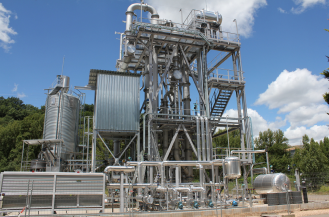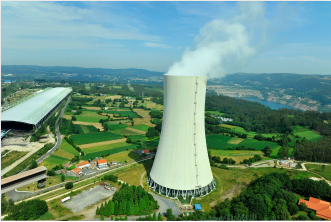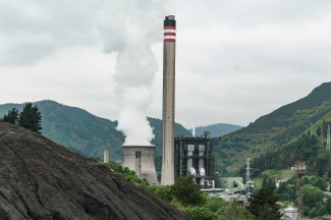Inicio / Sustainability / Just transition / Empleo
Employment
Our aim is to maintain employment in areas with dismantled facilities

Employment transition and economic reactivation
Our commitment to the territory and to the regions affected by the closure of facilities is ongoing. As part of this commitment, in April 2020 we entered into the Agreement for a Fair Energy Transition for the closed thermal power plants with the Ministry for the Ecological Transition and Demographic Challenge, the Ministry of Employment and Social Economy and corresponding trade unions. This agreement includes the commitment of stakeholders to take part in the employment transition and in the economic reactivation of the areas affected by the closure of thermal power plants.
- We prepare follow-up plans for each power plant that is closing down, with details of the proposals for new investments in the territories and the search for investors; plans for the relocation of in-house staff and the prioritisation of workers from auxiliary companies; and collaboration in support plans to improve employability in new activities.
- A framework is created to monitor the situation of affected workers, in addition to specific training plans and measures directed at their redeployment.
Public commitment to social dialogue
The Agreement for a Fair Energy Transition is a public commitment relating to social dialogue between workers, the General State Administration and the company itself in the area of coal-fired power plants closure and the repercussion on employment, industry and the territories.

- The decision to close the plant was communicated to the workers’ representative bodies, providing a detailed description of the reasons leading to the decision and analysing the different actions made available to the staff of each workplace.
- The entire workforce at the affected plants were immediately informed.
- At these meetings, it was announced that the People Team would conduct individual interviews to jointly seek the best solution based on the personal and/or professional circumstances of each employee.
- Preferential vacancy options were enabled to propose professional relocations with a view to minimising the impact of changing workplaces, making the most of the means that the company makes available and the flexibility of the units and teams.
- In relation to the contractors, and in line with the progressive and visible reduction of production activity, needs were adapted until the plants were closed. The approximate dates associated with the process were provided, as were the potential continuity options in the different dismantling activities.
- Solutions customised to each situation with continuous, close monitoring.
- Testimonial impact, despite the difficulties, in terms of geographic mobility.
The closure of plants that use coal technology has coincided with the growth in renewable technologies, with a view to not only replacing 100% of the installed capacity using coal but to broadly exceed it.

To redeploy the affected parties:
- The usual internal mobility channels were used, following the principle of fairness. At the same time, one-on-one conservations were organised with all the affected employees.
- Maximum flexibility measures were employed as part of their departure and their starting in new positions to facilitate the origin-destination transition.
- Regarding third-party employees, communication was established with the corresponding contractors, informing them of the steps to be taken and the channels for applying for work in dismantling tasks. These channels have ensured equal opportunities based on the identification of profile types by the companies awarded the dismantling works at each of the workplaces.
Fair transition strategy
In the framework of the Fair Transition Strategy, pursued by the Ministry for the Ecological Transition and the Demographic Challenge, and the Alliance for Vocational Training at the Ministry of Education and Vocational Training, the Naturgy Foundation has promoted a line of training actions in the field of energy that aims to update curricular content to adapt it to the real needs of companies and society, and thereby educate, train and qualify professionals to improve their skills and promote employability, in response to the needs of one of the sectors of tomorrow, as is the case of energy.

This programme takes specific action in the areas affected by the closure of thermal power plants and the process of the decarbonisation of the economy in Spain thanks to the agreements being established with the respective Ministries of Education in the autonomous communities of Asturias, Castile and León and Galicia, among other agreements.
As part of the Vocational Training Programme for Employability, the Naturgy Foundation provides training aimed at teachers, students undertaking vocational training and the unemployed, as well as employees in the sector. This training, certified in some cases by the corresponding administrations in the field of education, addresses sustainable and efficient building and rehabilitation, renewable gas, natural gas for vehicles, energy advice in vulnerable environments and the digitisation of electrical networks.
By disseminating up-to-date technical knowledge relating to energy efficiency, renewable energy and new energy technologies, the Naturgy Foundation aims to contribute to the development of the sector, promoting training in emerging occupations, recycling and job placement. To date, there have been more than 10,000 beneficiaries.
The Vocational Training Programme for Employability, organised by the Naturgy Foundation, forms part of the Alliance for Vocational Training, promoted by the Ministry of Education and Vocational Training. Furthermore, thanks to the agreement in place, this training will be recognised by the State Public Employment Service (SEPE) and used as a reference for updating its Catalogue of Training Specialities in the field of energy, sustainability and the environment, with a view to responding to the demands of emerging sectors and occupations.
The Naturgy Foundation forms part of a taskforce for professional certifications and specialisation courses. Regular meetings are held with representatives from INCUAL (National Qualifications Institute) and the Subdirectorate General for the Organisation and Innovation of Vocational Training.
Training events have been implemented through the regional departments and Naturgy’s own databases, and trade unions and the Institute of Fair Transition have been informed accordingly.
- “Renewable Gas. The future of energy and the environmental”: 20 hours with 17 attendees in December 2020. Virtual, combining synchronous and asynchronous modes. New calls in the fourth quarter of 2022 and in the second of 2023.
- “Sustainable construction and rehabilitation. The future of construction”: 30 hours with 15 attendees in November and December 2020. Virtual, asynchronous mode. New calls in the third quarter of 2022 with 9 attendees.
- “Training installation and maintenance of photovoltaic panels”: 20 attendees with 25 theoretical teaching hours and 15 practical hours between November and December 2022.
Regarding the dismantling works, in all cases and for all plants, environmental measures and safety procedures have been considered a priority to correctly dismantle properly, ensuring that third parties and the environment are not affected.
The buildings and installations at the power plants feature different types and combinations of structural elements; therefore, as part of the disassembly and demolition methodology, a combination of manual and mechanical procedures is being used, in some cases combining the two types of procedures and using explosives to carry out controlled blasting.
Security is considered a basic element of the dismantling of power plants, applying the company’s safety principles.



